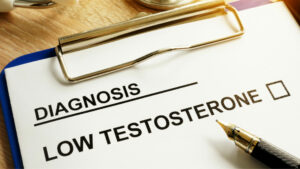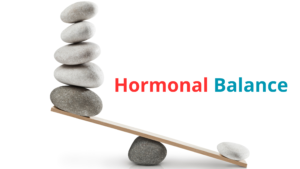Embark on a journey into the intriguing realm of Testosterone Myths. As we delve into this exploration of male hormones, our mission is to debunk prevalent misconceptions surrounding these vital biochemical messengers, with a particular focus on Testosterone. Unraveling the complexities of male hormones, our aim is to dispel myths and provide clarity. Join us in navigating through the diverse facets of male hormonal health, as we strive to reveal a more nuanced and accurate understanding. Welcome to the quest for debunking Testosterone Myths.
Table of Contents
Myth: Testosterone Only Affects Aggression
There is a pervasive myth that testosterone is solely responsible for triggering aggression in men. While it is true that testosterone plays a role in assertiveness and competitive behaviors, reducing its influence to just aggression oversimplifies the intricate relationship between hormones and behavior.
Testosterone, often referred to as the “male hormone,” is indeed linked to certain masculine traits. However, its impact extends far beyond aggression. Research indicates that testosterone also plays a crucial role in mood regulation, cognitive function, and overall well-being.
It’s essential to recognize that aggression is a complex behavior influenced by various factors, including genetics, upbringing, and environmental stimuli. Blaming testosterone alone oversimplifies the intricate interplay of nature and nurture in shaping behavior.
Moreover, studies have shown that testosterone can have prosocial effects, fostering cooperation and social bonding. The hormone influences not only aggressive behaviors but also positive social interactions, empathy, and emotional regulation.
Individual differences play a significant role in how testosterone affects behavior. People respond differently to the same hormonal levels, and attributing aggression solely to testosterone overlooks the importance of individual predispositions and experiences.
While testosterone does contribute to assertiveness, portraying it as the exclusive driver of aggression oversimplifies the complex relationship between hormones and behavior. Understanding the multifaceted nature of testosterone’s influence allows for a more accurate and nuanced perspective on its role in shaping human behavior.
Myth: More Testosterone Means More Masculinity
The belief that higher testosterone levels directly correlate with increased masculinity is a common misconception. While testosterone, the primary male sex hormone, does play a crucial role in shaping masculine characteristics, the relationship is more nuanced than a simple cause-and-effect scenario.
Firstly, it’s essential to understand that masculinity is a multifaceted concept influenced by a combination of biological, psychological, and social factors. Testosterone contributes to the development of male physical traits during puberty, such as facial hair, deepening of the voice, and muscle mass. However, attributing all aspects of masculinity solely to testosterone oversimplifies the complexity of human biology and behavior.
Individuals with naturally high testosterone levels may exhibit certain masculine traits, but other factors also play significant roles. Genetics, upbringing, cultural influences, and personal experiences all contribute to the expression of masculinity. Moreover, the idea that masculinity is solely defined by physical characteristics overlooks the emotional and social dimensions integral to the concept.
It’s important to note that excessively high testosterone levels do not necessarily lead to an exaggerated display of masculinity. Additionally, defining masculinity solely based on hormone levels can perpetuate harmful stereotypes and neglect the diverse ways in which individuals express their gender identity.
In reality, a healthy expression of masculinity involves a balance of physical, emotional, and social elements. The emphasis should be on understanding and respecting the individuality of each person rather than relying on a simplistic correlation between testosterone levels and masculinity.
The myth that more testosterone equates to more masculinity oversimplifies the intricate interplay of factors that contribute to gender identity. Recognizing the diversity of expressions of masculinity and appreciating the complexity of human biology is essential for fostering a more inclusive and accurate understanding of gender.

Myth: Testosterone Levels Are Constant Throughout Life
The myth that “Testosterone Levels Are Constant Throughout Life” is a common misconception that needs clarification. In reality, testosterone levels undergo significant fluctuations at various stages of a man’s life.
During adolescence and early adulthood, testosterone production peaks, contributing to the development of secondary sexual characteristics, muscle mass, and overall vitality. However, as men age, it’s natural for testosterone levels to gradually decline. This decline is part of the normal aging process and is not necessarily an indication of a health issue.
Several factors influence testosterone levels, and it’s crucial to understand that individual variations exist. Lifestyle choices such as diet, exercise, and sleep quality play pivotal roles in regulating hormone levels. A sedentary lifestyle, poor nutrition, and inadequate sleep can contribute to a more rapid decline in testosterone.
Contrary to the myth, this decline doesn’t mean that men experience a constant, irreversible drop in testosterone throughout their lives. While there may be a general trend of decreasing levels with age, it’s not a uniform or linear process for everyone. Some men may maintain relatively higher testosterone levels well into their later years.
It’s important to note that factors such as chronic stress, obesity, and certain medical conditions can also impact testosterone production. Addressing these factors through lifestyle modifications or medical interventions can help mitigate the decline in testosterone levels and promote overall well-being.
The myth that testosterone levels remain constant throughout life is debunked by the natural fluctuations that occur. Understanding these changes and adopting a healthy lifestyle can contribute to maintaining optimal hormone balance, supporting long-term health and vitality.
Myth: All Men Experience a Midlife Testosterone Crisis
The myth that all men universally experience a midlife testosterone crisis is a common misconception that warrants clarification. Testosterone levels indeed undergo changes as men age, but the idea of a crisis affecting every individual during midlife oversimplifies the complex hormonal dynamics at play.
Firstly, it’s essential to acknowledge that testosterone levels naturally decline with age. However, the rate and extent of this decline vary among men. While some may experience a gradual decrease, others may maintain relatively stable levels well into their later years. The notion of a midlife crisis implies a sudden and dramatic drop in testosterone, which is not a universal phenomenon.
Several factors contribute to the individual variability in testosterone levels during midlife. Genetics, lifestyle choices, and overall health significantly influence hormonal changes. Men who adopt healthy habits such as regular exercise, a balanced diet, and adequate sleep may mitigate the impact of aging on testosterone levels.
Moreover, attributing a midlife testosterone crisis solely to chronological age overlooks the psychological and social aspects of this phase of life. Not all men undergo a crisis of identity or well-being during midlife, and linking such experiences solely to hormonal changes oversimplifies the broader context.
It is crucial to distinguish between a natural age-related decline in testosterone and a clinical condition known as hypogonadism, where testosterone levels fall below the normal range, leading to symptoms such as fatigue, reduced libido, and mood changes. The majority of men do not experience such clinically significant declines during midlife.
While testosterone levels do change with age, the myth of a universal midlife testosterone crisis oversimplifies a complex biological process. Men should focus on maintaining a healthy lifestyle to support overall well-being rather than subscribing to a one-size-fits-all narrative of hormonal decline during midlife. Regular health check-ups and consultations with healthcare professionals can provide personalized insights into hormonal health, helping individuals navigate the aging process with informed choices.
Myth: Testosterone Replacement Therapy (TRT) is a Fountain of Youth
Testosterone Replacement Therapy (TRT) has gained popularity in recent years with claims of being a proverbial “Fountain of Youth.” However, it’s crucial to dispel the myth surrounding TRT and understand its role in the context of male health.
TRT is a medical intervention designed to address clinically low testosterone levels, a condition known as hypogonadism. While TRT can be highly beneficial for individuals with a genuine medical need, it is not a one-size-fits-all solution for combating aging or achieving eternal vitality.
The misconception that TRT is a Fountain of Youth stems from a misunderstanding of its purpose. Testosterone is a key hormone that contributes to various bodily functions, including muscle mass, bone density, and energy levels. As men age, testosterone levels naturally decline, leading to symptoms such as fatigue, reduced libido, and diminished muscle mass. TRT aims to restore testosterone levels to a healthier range and alleviate these symptoms in individuals diagnosed with hypogonadism.
However, it is crucial to emphasize that artificially elevating testosterone levels beyond what is medically necessary can have adverse effects. Misuse of TRT without proper medical supervision may lead to health risks, including cardiovascular issues, mood swings, and potential impacts on prostate health.
Moreover, the belief that TRT can reverse the aging process is unfounded. While it may address specific symptoms associated with low testosterone, it cannot halt the broader aging process or turn back the clock on natural aging. Aging is a complex interplay of genetic, environmental, and lifestyle factors, and no single intervention can universally reverse its effects.
Before considering TRT, individuals should undergo thorough medical assessments to determine if they indeed have low testosterone levels requiring intervention. A healthcare professional will consider various factors, including symptoms, blood test results, and overall health, to make an informed decision about the appropriateness of TRT.
Testosterone Replacement Therapy is not a magical elixir for eternal youth. It is a valuable medical tool designed to address specific health concerns related to low testosterone levels. Understanding its purpose and using it judiciously under medical supervision is crucial to ensuring its benefits without unnecessary risks. TRT should always be approached with a focus on individual health and well-being rather than as a shortcut to eternal youth.
Myth: Testosterone Is the Sole Hormone Influencing Male Health
The myth that testosterone is the sole hormone influencing male health oversimplifies the intricate interplay of hormones within the male body. While testosterone indeed plays a central role in male health, it is just one piece of the hormonal puzzle.
Testosterone, produced primarily in the testes, contributes to various aspects of male well-being, including muscle mass, bone density, and libido. However, neglecting the significance of other hormones, such as estrogen and cortisol, leads to a limited understanding of overall male health.
Estrogen, commonly associated with females, is present in males as well, albeit in lower quantities. It plays a crucial role in bone density, cardiovascular health, and brain function. Dismissing estrogen’s impact neglects essential facets of male health beyond the stereotypical focus on testosterone.
Additionally, cortisol, the stress hormone, influences metabolism, immune response, and energy regulation. Chronic stress can elevate cortisol levels, potentially impacting testosterone production and overall hormonal balance. This dynamic interaction emphasizes the need to consider a holistic hormonal perspective for comprehensive male health.
Understanding that testosterone does not operate in isolation is pivotal. A harmonious balance among various hormones is vital for optimal physical and mental well-being. Factors like diet, exercise, sleep, and stress management contribute significantly to maintaining this delicate hormonal equilibrium.
While testosterone holds a central role in male health, acknowledging the influence of other hormones is paramount. Embracing a holistic perspective ensures a comprehensive understanding of male physiology and guides individuals toward practices that promote overall hormonal balance and well-rounded health.
Myth: High Testosterone Equals High Libido
It’s a common belief that high testosterone levels inevitably translate to a robust libido. While testosterone does play a crucial role in sexual health, the relationship between testosterone and libido is more intricate than a simple cause-and-effect scenario.
Testosterone, a hormone predominantly associated with male characteristics, does contribute to the maintenance of a healthy libido. However, assuming that higher testosterone levels automatically result in an elevated sex drive oversimplifies the complex interplay of various factors influencing sexual desire.
Research indicates that while testosterone is a key player in the intricate orchestra of hormonal balance affecting libido, it is not the sole determinant. Psychological, emotional, and relational aspects significantly contribute to an individual’s overall sexual well-being. Stress, mental health, and the quality of one’s relationships can all influence libido, sometimes independently of testosterone levels.
Moreover, individual responses to hormonal changes vary. Some individuals with lower testosterone levels may have a perfectly healthy libido, while others with higher levels may not experience an exceptional sex drive. This diversity in responses emphasizes the need to consider a holistic approach when evaluating factors affecting libido.
It’s crucial to debunk the myth that a simple equation exists between high testosterone and high libido. While maintaining optimal testosterone levels is essential for overall sexual health, it’s equally important to address other aspects of well-being, both physical and psychological.
Understanding the nuanced relationship between testosterone and libido helps dispel misconceptions. Instead of fixating solely on testosterone levels, individuals should adopt a holistic approach to sexual health, considering various factors that contribute to a satisfying and balanced sexual life. Always consult with healthcare professionals for personalized advice tailored to individual health needs.
Myth: Exercise Always Boosts Testosterone Levels
The myth that exercise always boosts testosterone levels is a common belief, often perpetuated in the realm of fitness and health. While it is true that regular physical activity has numerous benefits for overall well-being, the direct relationship between exercise and testosterone levels is more complex than a straightforward cause-and-effect scenario.
Testosterone, a key male sex hormone, plays a crucial role in various bodily functions, including muscle development and maintenance, bone density, and overall energy levels. Many people believe that engaging in regular and intense physical activity will consistently elevate testosterone levels, leading to improved muscle growth and enhanced vitality.
However, the reality is more nuanced. Several factors influence the impact of exercise on testosterone levels. Short-term, high-intensity workouts can indeed result in a temporary spike in testosterone production. Yet, this increase may not necessarily translate into long-term elevation or sustained benefits.
It’s essential to recognize that the relationship between exercise and testosterone is dose-dependent. Too much or too little exercise can have different effects on hormonal balance. Excessive and prolonged endurance training, for instance, may lead to a temporary decline in testosterone levels. On the other hand, a lack of physical activity can also negatively impact hormonal health.
Moreover, individual responses to exercise vary. Factors such as age, fitness level, and overall health contribute to the body’s reaction to different forms and intensities of physical activity. A one-size-fits-all approach doesn’t apply when it comes to optimizing testosterone through exercise.
For those seeking to naturally support healthy testosterone levels, it’s crucial to adopt a balanced and sustainable exercise routine. Mixing resistance training with aerobic exercises, ensuring adequate rest, and maintaining a nutritious diet are key components of a holistic approach to hormonal health.
While exercise does play a role in influencing testosterone levels, the myth that it always leads to a substantial and consistent boost needs clarification. Balancing exercise with other lifestyle factors is essential for overall hormonal well-being. Understanding the nuances of this relationship empowers individuals to make informed decisions about their fitness routines and underscores the importance of a holistic approach to health.
Conclusion
The relationship between exercise and testosterone levels is multifaceted. While it is true that engaging in physical activity can have positive effects on hormonal health, assuming a direct and uniform boost from exercise oversimplifies the complex interplay between various factors.
The myth that exercise always leads to a significant and sustained increase in testosterone levels needs to be debunked. Understanding the nuances of this connection allows individuals to approach their fitness routines with realistic expectations. It’s essential to recognize that a well-rounded approach to health, encompassing not only exercise but also nutrition, adequate rest, and overall lifestyle choices, is key to supporting optimal hormonal balance.
Rather than focusing solely on immediate testosterone spikes, individuals should prioritize long-term well-being. A balanced exercise routine, combined with a healthy lifestyle, contributes to overall fitness and supports hormonal health in a sustainable manner. Striking the right balance is crucial, as excessive or inadequate exercise can have varying effects on testosterone levels.
In the journey toward a healthier lifestyle, it’s important to consider individual differences and listen to the body’s signals. Consultation with healthcare professionals and fitness experts can provide personalized guidance tailored to specific needs and goals.
By dispelling the myth of a universal and perpetual testosterone boost through exercise, we empower ourselves to make informed choices about our health and well-being. Remember, the path to a balanced and thriving life involves a comprehensive approach that goes beyond the confines of any single myth or misconception. Embracing this perspective allows us to navigate the realm of fitness and health with clarity, ensuring a more realistic and sustainable journey toward overall wellness.





